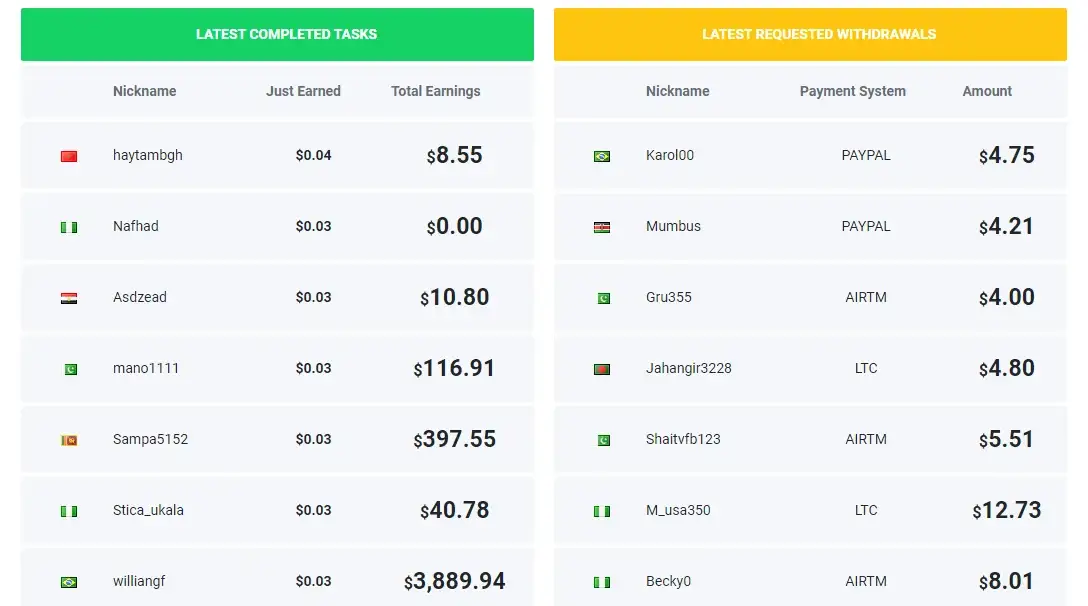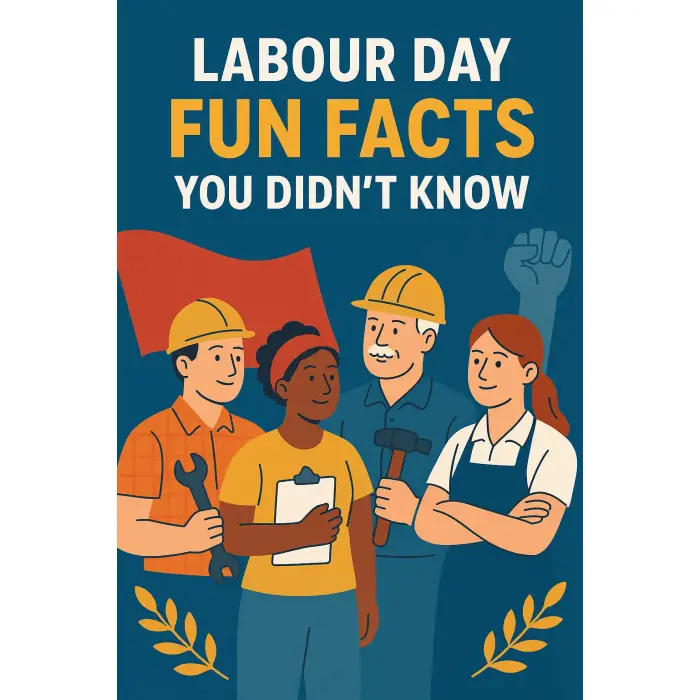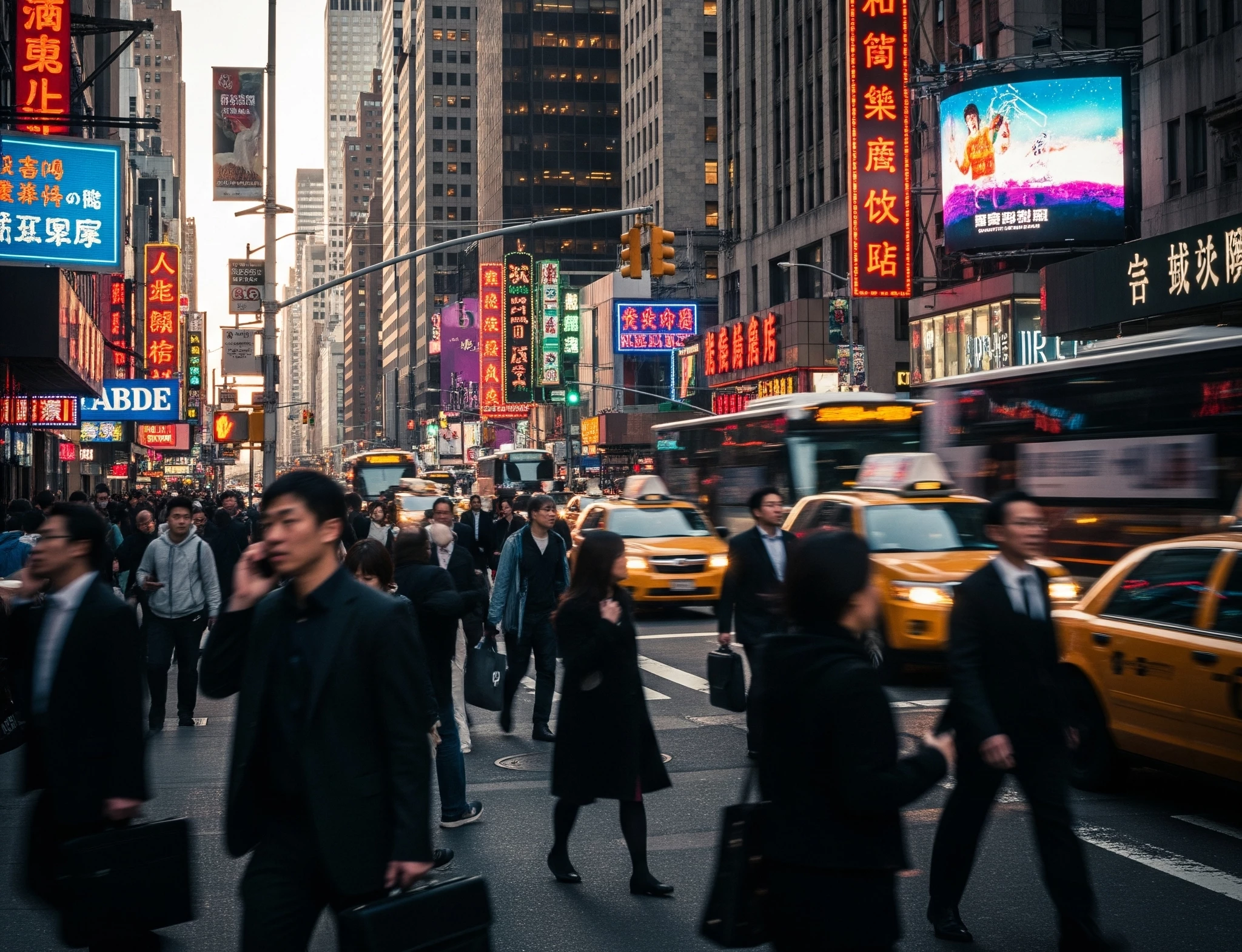
Labour Day Fun Facts You Didn’t Know

Labour Day is a special time when we honour workers and celebrate the contributions they make to society. While many people simply see it as a long weekend for rest, barbecues, and sales, the history and traditions behind Labour Day are rich with fascinating stories and little-known facts. In this article, we explore over 50 surprising and interesting facts about Labour Day that will make you see this holiday in a whole new light.
1. The Origins of Labour Day
Labour Day, also known as International Workers? Day or May Day in some countries, has its roots in the labour union movement. It began in the late 19th century to honour the struggles and achievements of workers. The first Labour Day celebrations were marked by parades, rallies, and calls for better working conditions.
The Haymarket Affair
One of the most significant events that led to Labour Day was the Haymarket Affair of 1886 in Chicago. Workers were protesting for an eight-hour workday, and the event turned violent when a bomb exploded during a rally. This incident became a symbol of the fight for workers? rights worldwide.
Recommended for You
From Strikes to a National Holiday
Labour Day gradually gained recognition as a national holiday. In the United States, President Grover Cleveland officially declared Labour Day a federal holiday in 1894, following widespread strikes and protests across the country. Many other countries followed suit, each establishing its own traditions.
2. Labour Day Around the World
Labour Day is celebrated differently across the globe. While the United States observes it on the first Monday of September, most countries celebrate International Workers? Day on May 1st.
May Day in Europe
In countries like Germany, France, and Italy, May 1st is a public holiday marked by parades, speeches, and workers? celebrations. It?s a day not only for relaxation but also for promoting labour rights and social justice.
Unique Traditions in Australia and Canada
In Australia, Labour Day celebrations vary by state, with some areas observing it in March or October. Canada celebrates it on the first Monday in September, similar to the US, with festivals, parades, and family activities.
3. Fascinating Labour Day Facts
Here are some of the most surprising facts about Labour Day that many people don?t know:
- Fact 1: Labour Day was first celebrated in 1882 in New York City, long before it became a federal holiday.
- Fact 2: The first Labour Day parade in the US had tens of thousands of participants, despite many workers facing resistance from employers.
- Fact 3: The idea of an eight-hour workday was revolutionary at the time, as most workers laboured for 10-16 hours daily.
- Fact 4: Some countries, like China and Russia, hold Labour Day celebrations for several days, making it a major holiday period.
- Fact 5: The red colour often associated with Labour Day comes from the socialist and labour movement, symbolising workers? struggle and solidarity.
- Fact 6: Many famous landmarks, such as the Statue of Liberty, have been part of Labour Day celebrations and parades in the US.
- Fact 7: Labour Day was originally intended to be a non-political holiday, but over time, it has become a platform for advocating workers? rights and social reforms.
- Fact 8: The Labour Day weekend marks one of the busiest travel periods in the US, with millions taking short vacations.
- Fact 9: Some countries celebrate Labour Day alongside spring festivals, linking labour rights with renewal and growth.
- Fact 10: The Labour Day holiday inspired other worker-focused holidays, like International Women?s Day, highlighting the intersection of labour and social equality.
4. Labour Day and Workers? Rights
Labour Day is more than just a holiday; it?s a reminder of the ongoing struggle for fair working conditions. Here are some remarkable stories:
Historic Strikes and Achievements
Labour Day commemorates various historic strikes that changed working conditions. The Pullman Strike of 1894, for example, led to federal involvement but also highlighted the need for better labour laws.
Modern-Day Workers? Struggles
Even today, Labour Day serves as a platform for discussing issues like minimum wage, safe working conditions, and paid leave. It is a day to celebrate progress while acknowledging ongoing challenges.
You Might Enjoy

Optimizing Your Website's SEO with Robot's txt File
Mastering SEO with robots.txt: The Complete Guide (2025 Edition)When it comes to search engine…
Legit Ways to Earn Money Online
How to Make Money Online for Beginners: Legit, Easy, and Fast Ways to Earn in 2025 (No Investment…
How to Earn Money with LeadsLeap
How to Earn Money with LeadsLeap Signup-For-Leads-Leap-Account Are you in search of new…5. Fun Labour Day Traditions
Many people associate Labour Day with barbecues and shopping, but some unique traditions exist worldwide:
- Parades and Marches: From New York to London, parades are a key feature of Labour Day, showcasing unity and solidarity.
- Speeches and Rallies: Labour leaders often address crowds, highlighting workers? achievements and advocating for reforms.
- Festivals and Music: Some countries organise music festivals, arts performances, and fairs during Labour Day.
- Sporting Events: Labour Day often coincides with football games, races, and community sporting events.
- Family Picnics: In North America, family barbecues and picnics are a beloved tradition, marking the end of summer.
6. Labour Day and Popular Culture
Labour Day has inspired various cultural references, from songs to movies. Many films set during the holiday explore themes of work, struggle, and celebration. Music festivals and concerts on Labour Day weekend are also popular, particularly in North America and Australia.
Labour Day in Film and Television
Several TV shows and films feature Labour Day as a backdrop, often highlighting family gatherings, workplace dynamics, or historical events. These depictions reinforce the holiday?s dual significance as both a celebration and a reminder of workers? contributions.
Music and Labour Day
Labour Day concerts often feature folk, rock, and contemporary music. Songs celebrating workers? struggles or the concept of freedom are commonly played during rallies and events.
7. Surprising Labour Day Records
Some record-breaking Labour Day facts might surprise you:
- Longest Parade: The Toronto Labour Day Parade is one of the longest-running in North America, attracting hundreds of thousands of participants each year.
- Largest Barbecue: Some US cities host mass barbecues serving tens of thousands of people on Labour Day weekend.
- Most Travelled Holiday: Labour Day weekend is considered one of the busiest travel periods in North America, with millions of Americans flying or driving for short vacations.
- Biggest Sporting Events: Canadian football often features its championship games during the Labour Day weekend, drawing huge crowds and nationwide attention.
8. Labour Day Myths and Misconceptions
Despite its long history, Labour Day is surrounded by myths:
- Myth 1: Labour Day is only about rest and leisure. Reality: While rest is part of it, the holiday has deep historical and political roots.
- Myth 2: Labour Day is celebrated the same way worldwide. Reality: Dates, traditions, and significance vary significantly by country.
- Myth 3: Labour Day was created by governments. Reality: It originated from workers? movements and protests, only later recognised officially.
- Myth 4: Labour Day is only for adults. Reality: Children and families participate in parades, fairs, and educational events about workers? rights.
9. Labour Day Around the World ? Unique Practices
Let?s explore some of the more unique celebrations:
More Reads You’ll Love

32 Tips On Keyword and Niche Research
A Comprehensive Guide to Keyword and niche researchIntroduction: In the expansive realm of search…
Selling Art Online
How To Start Selling Art Online for Beginners If you are an artist or a creative person; harness…
Website Monetisation: The Complete Guide to Earning from Your Online Platform
Have you ever wondered how to turn your website into a revenue-generating machine? You?re not…Japan
In Japan, Labour Day is not officially recognised, but May 1st is celebrated with local events highlighting labour achievements and cultural performances.
Germany
Germany observes May Day as a public holiday with rallies, festivals, and demonstrations focusing on workers? rights and social justice.
Brazil
Brazil celebrates Labour Day with music festivals, political rallies, and community gatherings. It?s also a day to highlight labour achievements and social progress.
South Africa
In South Africa, Labour Day is celebrated on May 1st with parades, marches, and speeches by labour unions emphasising equality and workers? rights.
10. Labour Day and Modern Workplace Trends
Labour Day offers insight into how work and workers? rights have evolved. Modern trends include:
- Remote work flexibility and the rise of the gig economy
- Focus on mental health and work-life balance
- Increased attention to fair pay and workplace diversity
- Integration of technology to improve working conditions
Understanding these trends in the context of Labour Day helps us appreciate the ongoing importance of worker advocacy and social progress.
11. How to Celebrate Labour Day Creatively
Labour Day doesn?t have to be just about resting or shopping. Here are some creative ways to celebrate:
- Volunteer Work: Honour workers by giving back to your community.
- Educational Activities: Teach children about the importance of workers? rights through games and storytelling.
- Documentaries and Films: Watch films that highlight historical labour movements and workers? struggles.
- Outdoor Adventures: Use the long weekend for hiking, camping, or exploring nature with friends and family.
- Cooking Together: Prepare traditional meals or BBQ recipes that families enjoy every Labour Day.
12. Labour Day and Economic Impact
Labour Day also has significant economic implications. Retailers experience a surge in sales due to holiday promotions, tourism spikes in certain regions, and the food and beverage industry sees increased activity with barbecues and gatherings. Understanding these trends helps businesses plan effectively for this important holiday.
Conclusion
Labour Day is far more than a long weekend; it is a celebration of workers, history, and social progress. From the Haymarket Affair to modern-day parades, from traditional barbecues to economic impact, the holiday is rich with stories and facts that many people overlook. By understanding these fun and fascinating Labour Day facts, we can appreciate the struggles and achievements of workers worldwide and celebrate their contributions in meaningful ways. This Labour Day, take a moment to reflect on the history, enjoy the festivities, and perhaps learn something new about the holiday you may have taken for granted.
Other Topics That Might Interest You

Domain Authority (DA) vs Domain Rating (DR) what's the difference?
DA might be more useful for assessing the overall SEO health of a site, including technical SEO,…
Exploring Art Residencies What They Offer, How to Join, and More
What Is Art Residencies Introduction: Art residencies serve as sanctuaries for artists, providing…




Comments